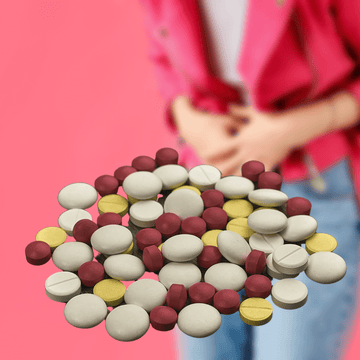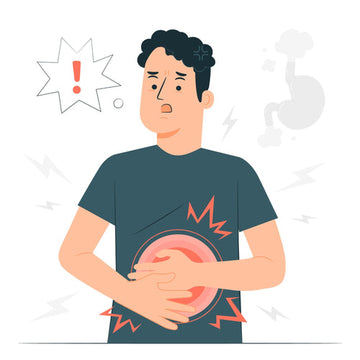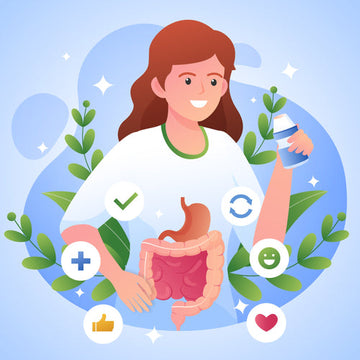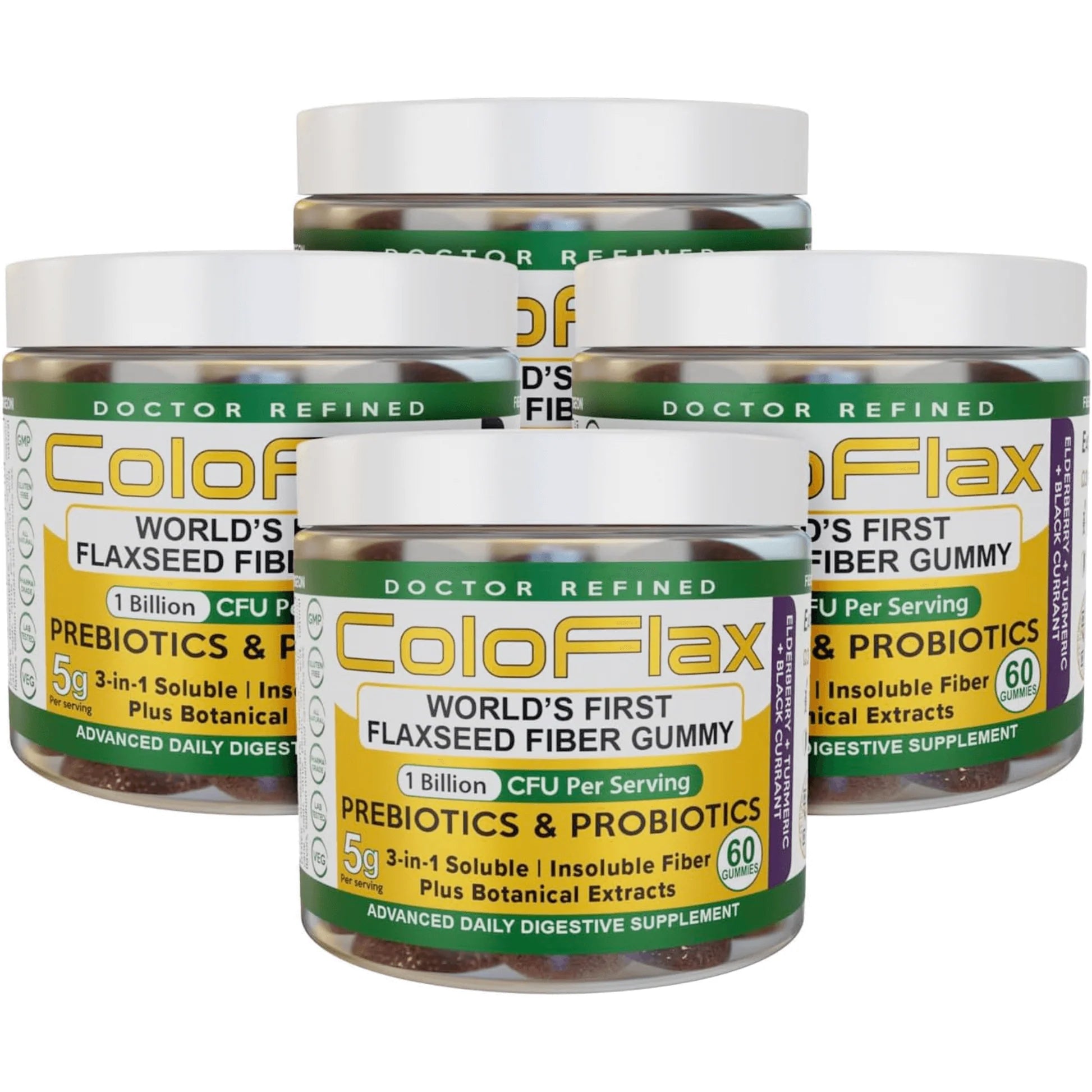In the first 15 years of the new millennium, antibiotic prescriptions increased by 65%. The world is hooked on these lifesaving, bacteria-destroying compounds, and it’s only in the last year or so that we’ve seen trends toward fewer prescriptions. (1)
The issue is not that bacterial infections are significantly more common than they were, but that people are increasingly turning toward antibiotics as a kind of cure-all. They’re taken to treat disease and as a precaution. It’s also not uncommon for them to be given to patients presenting with viral infections, either because there is a risk of bacterial infection or simply because the patient thinks antibiotics will make them better and the doctor wants an easy life.
There are a couple of issues with this. Firstly, needless antibiotic prescriptions have given rise to antibiotic resistant superbugs, potentially leading to a future where bacterial infections can once again wreak havoc. Secondly, and more importantly for the purpose of this article, antibiotics can upset the delicate balance in the gut microbiome.
If you have been struggling with a bout of diarrhea/constipation following a course of antibiotics, it could be more than just a coincidence.
Why We Need Bacteria
Not all microbes are bad. Sure, they have a bad reputation (killing half of Europe in the 14th century and following it up with tuberculosis, E. coil, and strep will do that), but some species are needed for optimal health.
In the 1980s, a team put together by Bernard S. Wostmann raised animals in a germ-free environment to test a theory posited by Louis Pasteur (the father of vaccines) a century earlier. Understanding that bacteria could be both good/essential and bad/deadly, Pasteur suggested that animals raised in a germ-free environment could not survive. (2)
While the animals in the study did in fact survive, they had smaller vital organs, needed much more nutrient-rich food, and had stunted growth. All of these things, they concluded, could be remedied by introducing beneficial gut bacteria.
It’s a similar story with humans. It’s important to stay clean and germ-free, but being completely germ free would deprive us of the many benefits provided by intestinal microbes. The human digestive tract is home to trillions of microbial cells, and they all play a role in keeping us healthy and ensuring that everything works as it should. (3)
How Antibiotics Impact Gut Health
Antibiotics work in one of two ways. The most common type of antibiotics are known as bactericidal antibiotics and include amoxicillin. These drugs change the formation of the bacterial cell wall to destroy it. They can work together with the immune system to eradicate all of the bacteria over a course of several days.
There is also something known as a bacteriostatic, which stops the bacteria from multiplying.
They are incredibly effective medications and have saved millions of lives. But they’re not very selective. They can’t be altered to kill only “bad” bacteria, so a lot of good organisms are destroyed as collateral.
In a Cell Reports paper, researchers gathered a group of healthy adults to determine the effects of antibiotics on the gut microbiome. They measured the microbiomes of the participants before and during treatment, as well as 6 months afterwards. (4)
They observed “an acute decrease in species richness and culturable bacteria after antibiotics”. In other words, there was less diversity and fewer numbers overall, suggesting that the microbiome had been notably depleted.
How to Improve Gut Health After Antibiotics
In the aforementioned Cell Reports study, the microbiomes of the participants returned to pre-testing levels after around 2 months. It suggests, therefore, that time is one of the best ways to fully replenish bacteria levels after a course of antibiotics. Assuming there are no further courses of antibiotics or any other issues, everything should return to normal.
However, there are some exceptions. Some people who take multiple courses of antibiotics or have pre-existing digestive issues may not replenish as quickly. What’s more, 2 months is a long time if you’re struggling with digestive discomfort throughout.
So, there are a few things that you can do to encourage your gut microbiome to flourish:
Eat More Fiber
Fiber is your friend when it comes to your gut microbiome. Your body doesn’t digest them, but they can serve as food for the bacteria, allowing them to thrive and flourish.
Eat a variety of different high fiber foods to ensure you get a balance of both insoluble and soluble fiber, along with essential enzymes, nutrients, and antioxidant compounds. Not sure where to start? Take a look at our guide to the best sources of fiber.
Make sure you pick up a bottle or two or ColoFlax, as well. It contains lignan-rich flaxseeds, along with inulin, probiotics, omega-3 fatty acids, and botanical extras. It’s a high-fiber, delicious gummy that can support your digestive health.
Eat More Fermented Foods
Fermented foods contain living bacteria that boost your microbiome, so consider adding them to your diet. These foods are often low in calories and packed with other nutrients. Take sauerkraut and kimchi as an example. These spicy, vinegary side dishes are made from fermented vegetables and contain a range of vitamins and minerals, as well as probiotics. As for natural yogurt and kefir, they are high in calcium and protein.
If you have GERD or a sensitive stomach, choose your fermented foods wisely. Sauerkraut and kimchi may trigger your heartburn, so try miso or natural yogurt instead.
Reduce Your Intake of Potentially Harmful Foods
Processed food and refined sugar could harm the little microbes residing in your gut, so reduce your intake where possible. The same applies to alcohol and cigarettes, as well as artificial sweeteners. It has also been said that red meat and highly processed meat can be bad for your digestive health, partly because it’s high in saturated fat and low in fiber, but also because it may contain antibiotics.
In truth, it’s all about moderation. If you eat meat and enjoy the occasional steak, treat yourself. Just consider adding a dollop of peas or a few stalks of broccoli to your plate, and wash it down with a glass of water as opposed to a sugary soda.
Take Probiotics
Not a fan of fermented foods? You can buy probiotics in supplement form. Available as drinks and pills, these supplements will top up your microbiome with billions of bacteria.
As always, stick with reputable brands and look for a high number of colony forming units (CFUs), which indicates how many living and active microorganisms there are in the supplement.
ColoFlax users will be glad to know that they’re already consuming a premium probiotic. In addition to fiber, essential fatty acids, and prebiotics, these delicious gummies contain a proprietary probiotic blend with over 1 billion CFU.
Keep a Food Diary
How many times have you looked at the scales in dismay and wondered how you’re not losing weight when you’re eating so little? We all do it, and while we’d like to blame it on our slow metabolism, it’s often related to eating habits. It could mean that you’re snacking without even realizing it—a bag of chips while watching a film, a quick candy bar at work. It could be related to your portion size or the fact that you’re not counting coffee, even though you’re going heavy on the sugar and cream.
Either way, you’re probably not as good at mentally counting calories as you think you are. It’s a similar story when you see a little red in your stools or suffer from a bout of diarrhea and then spend the entire morning trying to recount what you ate that could have caused the issue—did that salad have beets? Was that fast food burger properly cooked?
To avoid these issues, keep a food diary. Use apps like Cronometer and MyFitnessPal to track everything that you eat and drink. If there is an issue with your gut health, you can simply check your food diary and find the cause. If you struggle with repeated bouts of the same problem, scan through your entries to find the common culinary denominator.
Stay Active
Exercise has a major impact on everything from your mood to your gut health. A sedentary lifestyle can leave you prone to bouts of constipation and may cause a wealth of other health issues.
But that doesn’t mean you immediately need to sign up for your local gym and hit the weights every day. Simply going for a walk a few times a week is sufficient to keep your heart ticking, your bones strong, and your gut healthy. Stretching helps too, as does yoga and Pilates.
It’s all about staying active and mobile, ensuring your gut doesn’t become lazy.
How Do You Know if You Have Issues With Your Gut Microbiome?
Some of the issues typically associated with digestive imbalance include constipation, diarrhea, weight gain, and gas. However, these issues could be related to a change in your diet or lifestyle. It’s not easy to pinpoint digestive issues as there are many potential causes.
However, if you have been struggling with digestive complaints for a number of days or weeks and there is no immediately obvious cause, your intestinal flora could be the issue. Try some of the tips mentioned above to see if they work for you. If you don’t notice any positive changes or the issue gets worse, consult with a physician.
When Should You See a Doctor?
If something is not right and you’re not sure of the cause, contact your doctor. It’s always best to err on the side of caution where your health is concerned. Your doctor will likely ask some questions about your diet and lifestyle before conducting a few tests and making suggestions.
Summary: How Antibiotics Change Your Gut Health
Antibiotics are one of the most important discoveries in human history. If you’re over the age of 50, there’s a high chance you have taken at least one course of these drugs in your life. Maybe they helped you to fight a serious bacterial infection. Maybe they were given post-surgery as a preventative measure or to clear a simple tooth infection.
Either way, there’s a chance they saved your life, and their importance cannot be underplayed.
But they can upset your digestive health, and if you take multiple courses during a short space of time, it could take months for you to fully recovery. So, only use them as and when prescribed and don’t reach for them just because you have a viral infection and they “might” help (they won’t).
References
- https://www.pnas.org/doi/10.1073/pnas.1717295115
- https://pubmed.ncbi.nlm.nih.gov/6764717/
- https://www.ncbi.nlm.nih.gov/pmc/articles/PMC3667473/
- https://www.cell.com/cell-reports






